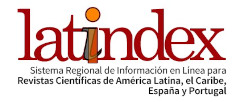(DES)EMPODERAMENTO DAS MULHERES RURAIS DO ESTADO DO TOCANTINS A PARTIR DO ACESSO À POLÍTICA PÚBLICA DE CRÉDITO RURAL “PRONAF”
DOI:
https://doi.org/10.54399/rbgdr.v20i2.7380Keywords:
Female Empowerment, Rural Women, Pronaf Woman, Oral HistoryAbstract
The objective of this work is to analyze the Pronaf rural credit program as an instrument for empowering rural women in the state of Tocantins. Pronaf Mulher contracts were analyzed in different municipalities from 2013 to 2020. The research problem sought to understand how Pronaf acts as an agent of empowerment for rural women in Tocantins, with a view to promoting their economic autonomy , political and social. The methodology included the analysis of documents and interviews using the Oral History proposal. The interviews were carried out in the rural communities of Vale Verde and Três Lagoas. Data analysis was based on a theoretical framework that considers women's empowerment theories, including factors such as access to information, training and financial resources. The results demonstrated that Pronaf provided improvements in the economic, social, personal and political dimensions of rural women in Tocantins. However, they also revealed that the majority of people do not have access to rural credit, which indicates that the program only partially achieved its objectives. Access to financial resources was identified as a crucial factor in the economic empowerment of rural women, but they faced difficulties in obtaining credit. It is concluded that it is necessary to expand access to information, training and financial resources to promote the empowerment of rural women in Tocantins and deal with differences in access to rural credit, taking into account the particularities of each region.
Downloads
Published
How to Cite
Issue
Section
License
Copyright (c) 2024 Revista Brasileira de Gestão e Desenvolvimento Regional

This work is licensed under a Creative Commons Attribution-NonCommercial 4.0 International License.
Authors who have their papers accepted and published in the Brazilian Journal of Regional Management and Development must agree to the copyright policy CC BY https://creativecommons.org/licenses/by/4.0/.
If the article is accepted for publication, the copyright is automatically assigned to the Brazilian Journal of Regional Management and Development.

















